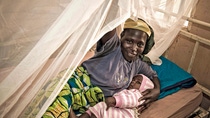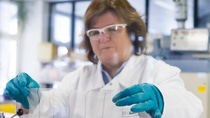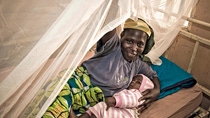Agriculture
Interceptor® G2 – Breakthrough To Beat Insecticide Resistance
Interceptor® G2 is a long-lasting, insecticide-treated mosquito net that combats resistant mosquitoes. BASF has received a WHO PQ listing for the Interceptor® G2 net so that it may be used in the fight against malaria. This is the first malaria control product based on a new insecticide class for more than 30 years.

Malaria is preventable and curable. Since 2010, nearly seven million lives, primarily young children, have been saved largely due to the distribution of insecticide- treated mosquito nets. However, growing resistance to public health insecticides could threaten the progress of recent years. Alternatives are urgently needed.
Now, after a collaboration with the Innovative Vector Control Consortium and the London School of Hygiene & Tropical Medicine that lasted more than a decade, BASF’s scientists have successfully repurposed chlorfenapyr – a completely new insecticide class for mosquito control in public health - to be effective on mosquito nets and meet the stringent WHO performance thresholds for public health.
The new net is based on a novel combination of chlorfenapyr and alpha-cypermethrin to both protect sleepers and combat resistant mosquitoes. It is now the first insecticide-treated mosquito net that is not only based on pyrethroid chemistry.
Following the WHO PQ listing, BASF started preparations to launch Interceptor® G2 for malaria control. Depending on local registration processes, the new mosquito net has been available to health ministries and aid organizations since 2018. A second chlorfenapyr product, an indoor residual spray named Sylando® 240SC to coat interior walls and ceilings, is under evaluation for WHO PQ listing.

The story behind the development
"A new development that actually enables the malaria community to deal with resistant mosquitoes - the first new mode of action product since 30 years in this market"
The scientists and developers behind Interceptor® G2 talk about the challenges, the highs and lows, and what this breakthrough in malaria control means to them personally.






